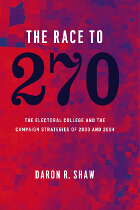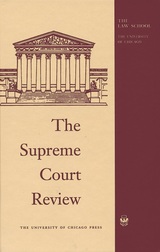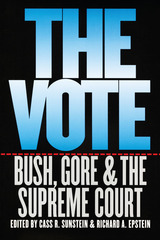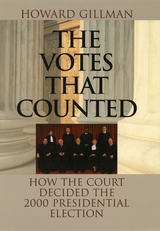
Proceedings of the Harvard Celtic Colloquium, 20 includes “Retoiric and Composition in Geneamuin Chormaic,” by Hugh Fogarty; “Classical Ethnography and Celts: Can We Trust the Sources?” by Philip Freeman; “Prayers, Prizefights and Prostitution: The Medieval Irish Cemetery and Its Many Uses,” by Susan Leigh Fry; “Magical Realism and the Mabinogi: An Exercise in Methodology,” by Michael Linkletter; “Rebuke and Revision in the Early Irish Annals: The Death-Notices of Muirchertach mac Ercae [†534],” by Laurence Maney; “‘To a man for the King’: The Allegiance of Welsh Catholics during the First Civil War, 1642–46,” by Robert Matthews; “King and Druid,” by Arun Micheelsen; “‘Words, words, words’: Language about Language in France and Ireland,” by Grace Neville; “Ystoria Tri Brenin o Gwlen,” by Prydwyn Piper; and “Highland Motives in the Jacobite Rising of 1745–46: ‘Forcing Out,’ Traditional Documentation and Gaelic Poetry,” by James A. Stewart, Jr.
Proceedings of the Harvard Celtic Colloquium, 21 includes “Gendering the Vita Prima: An Examination of St. Brigid’s Role as ‘Mary of the Gael,’” by Diane Peters Auslander; “Apollonius of Rhodes’ Argonautica: A Mythology of Greek Expansion in Celtic Lands,” by Timothy P. Bridgman; “The Wealth of the Medieval Welsh Gentry: The Case of Gwilym ap Gruffydd of Penrhyn,” by A. D. Carr; “Celtic Languages in the 1910 U.S. Census,” by Jonathan Dembling; “Digging Deeper: Adventures in Medieval Irish Burial and the Case for Interdisciplinary Scholarship,” by Susan Leigh Fry; “Laoiseach Mac an Bhaird and the Politics of Close Reading,” by Sarah E. McKibben; “Prescient Birds and Prospective Kings: Further Comments on Irish Elements in the Eddic Poem Rígsþula,” by Amy Eichhorn Mulligan; “The Descent of the Gods: Creation, Cosmogony, and Divine Order in Lebor Gabála,” by Sharon Paice Macleod; “Babel Is Come Again: Linguistic Colonisation and the Bardic Response in Early Modern Ireland,” by Patricia Palmer; “‘In Defiance of the Gospel and by Authority of the Devil’: Criticism of Welsh Marriage Law by the English Ecclesiastical Establishment and Its Socio-Political Context,” by Laura Radiker; and “The Way We Were: Twentieth Century Brittany through the Eyes of Breton Language Memorialists,” by Lenora Timm.

The Electoral College has played an important role in presidential politics since our nation’s founding, but surprisingly little information exists about precisely how it affects campaign strategy. Daron R. Shaw, a scholar who also worked as a strategist in both Bush-Cheney campaigns, has written the first book to go inside the past two presidential elections and reveal how the race to 270 was won—and lost.
Shaw’s nonpartisan study lays out how both the Democrats and the Republicans developed strategies to win decisive electoral votes by targeting specific states and media markets. Drawing on his own experience with Republican battle plans, candidate schedules, and advertising purchases—plus key contacts in the Gore and Kerry camps—Shaw goes on to show that both sides used information on weekly shifts in candidate support to reallocate media buys and schedule appearances. Most importantly, he uses strikingly original research to prove that these carefully constructed plans significantly affected voters’ preferences and opinions—not in huge numbers, but enough to shift critical votes in key battlegrounds.
Bridging the gap between those who study campaigns and those who conduct them, The Race to 270 will provide political scientists and practitioners alike with fresh insights about the new strategies that stem from one of our oldest institutions.

The Supreme Court Review keeps you at the forefront of the Court's most significant decisions by surveying its origins, reforms, and interpretations of American law and compelling you to consider the impacts of legal institutions and judicial opinion. Diverse essays of informed analyses of past and present opinions document the complexities of the Court and relevant public law issues. Legal scholars, lawyers, judges, historians, political scientists, economists, and journalists have won acclaim for their contributions to each volume.

The contributors to this volume were highly visible in the national media while the controversy raged, and here they present fully fleshed-out arguments for the positions they promoted on the airwaves. Readers will find in The Vote equally impassioned defenses for and indictments of the Court's actions, and they will come to understand the practical and theoretical implications of the Court's ruling in the realms of both law and politics. No doubt a spate of books will appear on the 2000 presidential election, but none will claim as distinguished a roster of contributors better qualified to place these recent events in their appropriate historical, legal, and political contexts.
Leading constitutional scholars render their verdicts on the 2000 presidential election controversy
Contributors:
Richard A. Epstein
Elizabeth Garrett
Samuel Issacharoff
Pamela S. Karlan
Michael W. McConnell
Frank I. Michelman
Richard H. Pildes
Richard A. Posner
David A. Strauss
Cass R. Sunstein
John Yoo
An earlier electronic edition of The Vote was available on the University of Chicago Press Web site.

Lively and authoritative, the book documents how the participants, the press, the academic community, and the public responded during these tension-filled thirty-six days. Gillman also provides a serious yet accessible overview of the legal strategies and debates-from briefs and oral arguments to final decisions. However, in explaining the behavior of courts, he moves beyond an analysis of law to also take into account the influences of partisanship, judicial ideology, and broader political and historical contexts.
Appropriately, Gillman pays special attention to the judges whose behavior generated the most controversy—the battling justices of the Florida and United States Supreme Courts. After carefully reviewing the arguments for and against their decisions, he concludes that the five justices behind the Bush v. Gore decision acted outside what should be considered the acceptable boundaries of judicial power. Gillman ends with an analysis of why they chose such an unprecedented course of action and an assessment of whether their partisan intervention will have any lasting effect on the Supreme Court's reputation and authority.

Those who do not have their heads buried too deeply in partisan sands will know that there is something awry with the American form of electoral democracy. Florida's continuing ability to misplace votes recently and in the 2000 Presidential election is only part of the iceberg we have been made privy to-and Steven Schier takes a good, hard, evaluative look not only at what is there in plain sight, but that which lurks below the surface (and not only in Florida and not only with the electoral college). He further proposes practical improvements that will make our surprisingly peculiar democratic processes healthy, whole, and responsive again.
Identifying four essential evaluative criteria for a democracy that genuinely works, Schier asks us to examine the degree to which our system promotes political stability, the degree to which our elected officials are held accountable, what the problems are with voter turnout and how to improve it, and asks for a meaningful scrutiny of governmental policy.
No look at our peculiar democracy would be complete without an examination of other established democracies, nor a look at how special interests warp political parties and the concept of majority rule. The solution to many of our electoral problems, Schier argues, lies in enhancing the roles and influence of political parties. Schier proposes reforms that include broadening voter registration; giving parties large blocks of free TV time; adopting one-punch partisan ballots, making it easier for voters to cast a straight-party vote; abandoning initiatives which clutter up the ballot; and utilizing party-based financing to boost voter turnout. With these proposals, he encourages the creative consideration of election reform, and shows how the Florida 2000 race may have played out had these suggestions been in place.
Schier's book appeals to any and every citizen interested in our electoral system and its role in governmental politics. It is invaluable for professionals in political science and ideal for students in American government, political parties, elections, and political behavior courses, as well for political scientists. Any citizens concerned about the conduct of American elections will discover here a fresh and focused analysis of our problems at the ballot box.
READERS
Browse our collection.
PUBLISHERS
See BiblioVault's publisher services.
STUDENT SERVICES
Files for college accessibility offices.
UChicago Accessibility Resources
home | accessibility | search | about | contact us
BiblioVault ® 2001 - 2024
The University of Chicago Press









